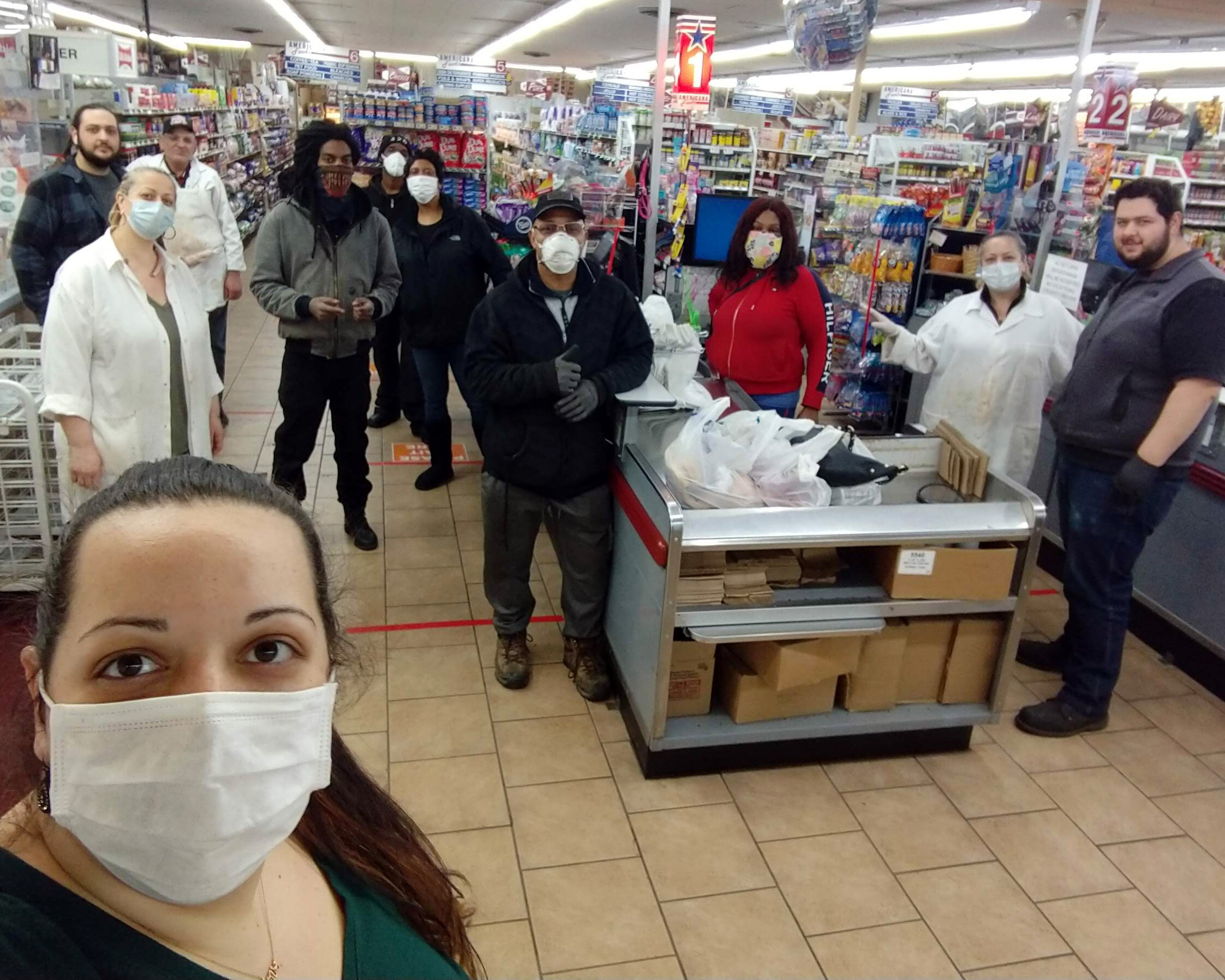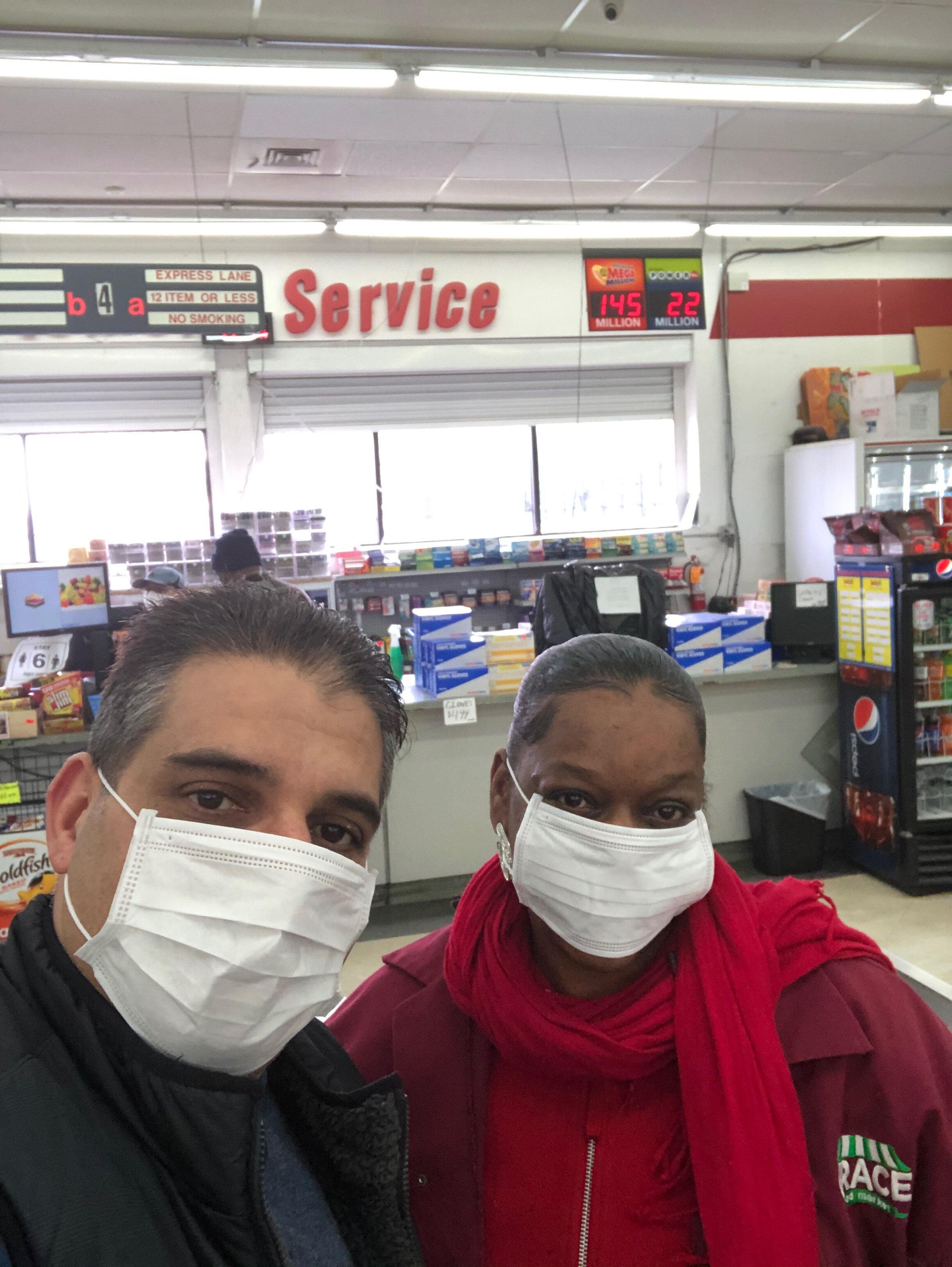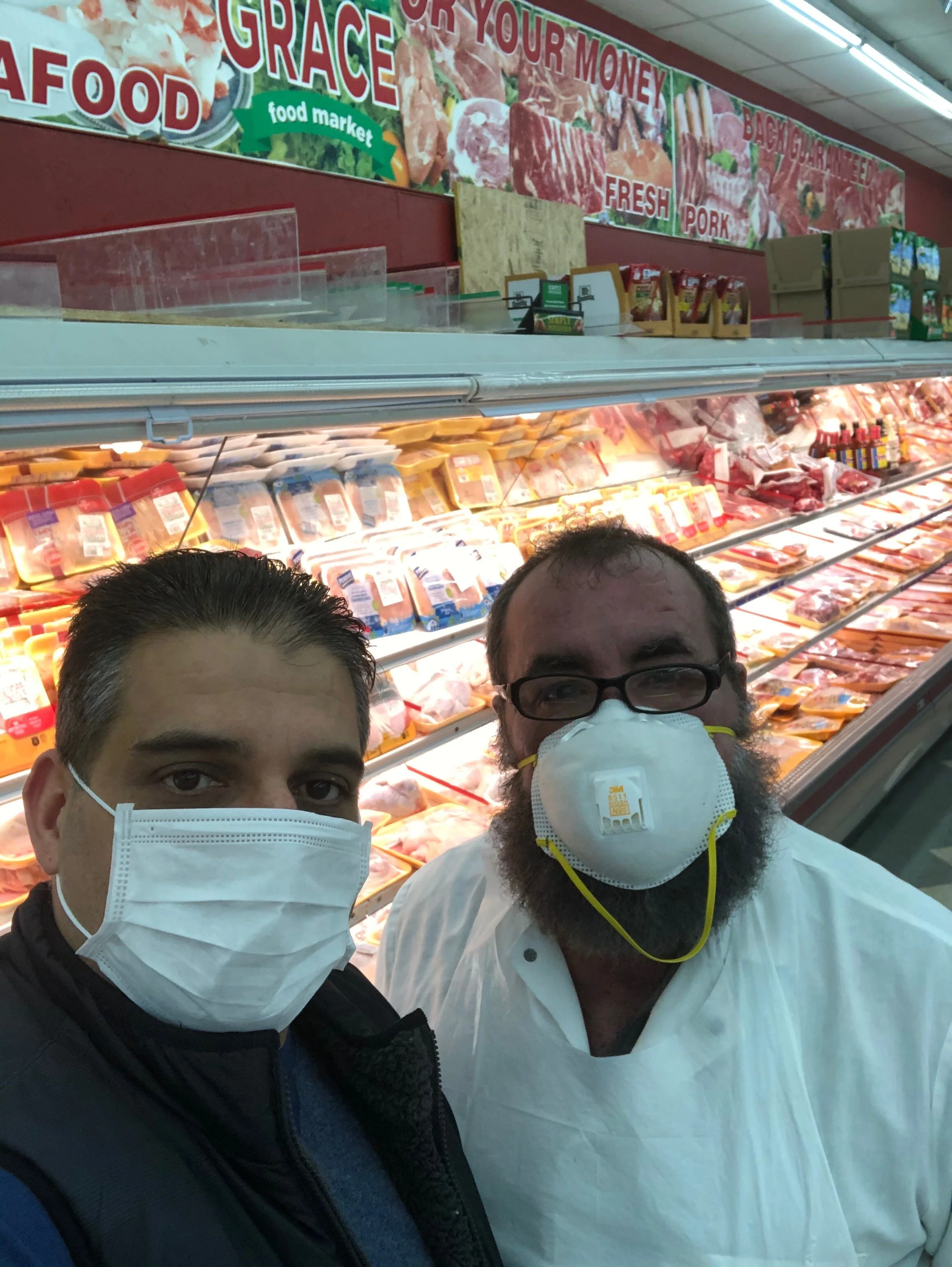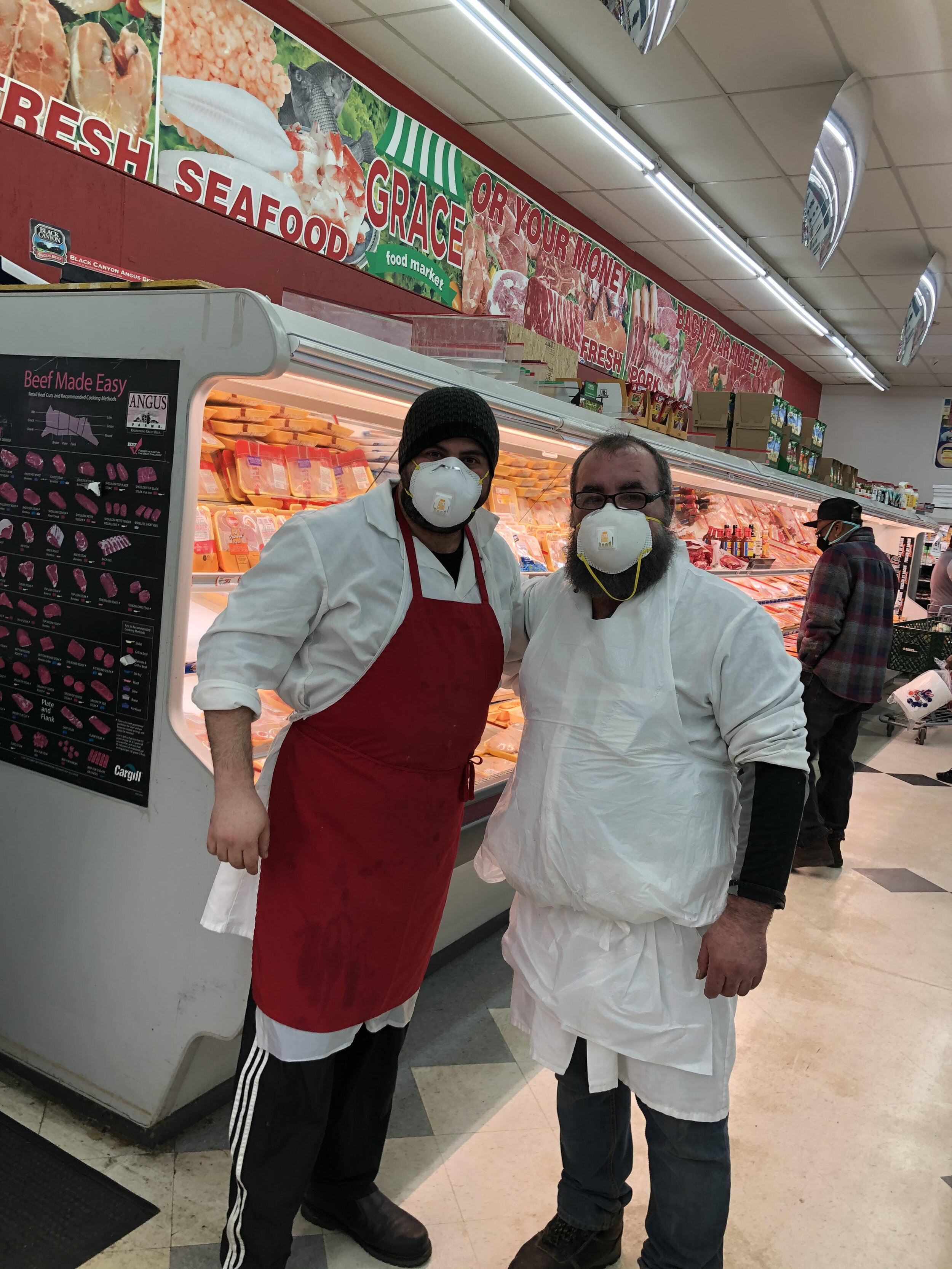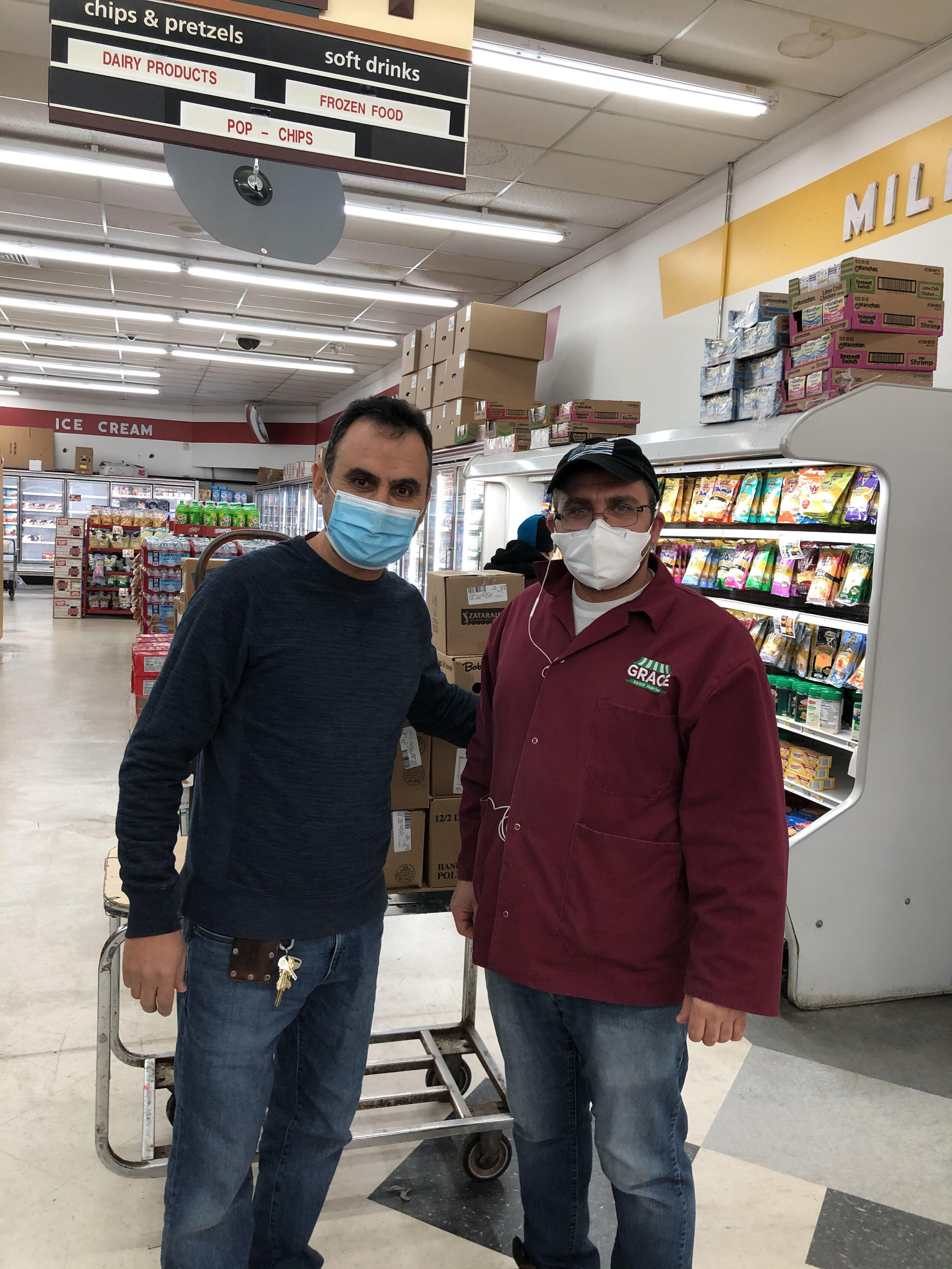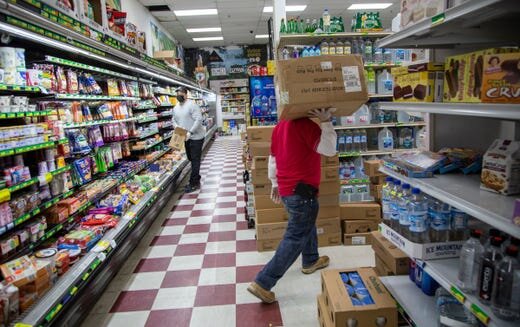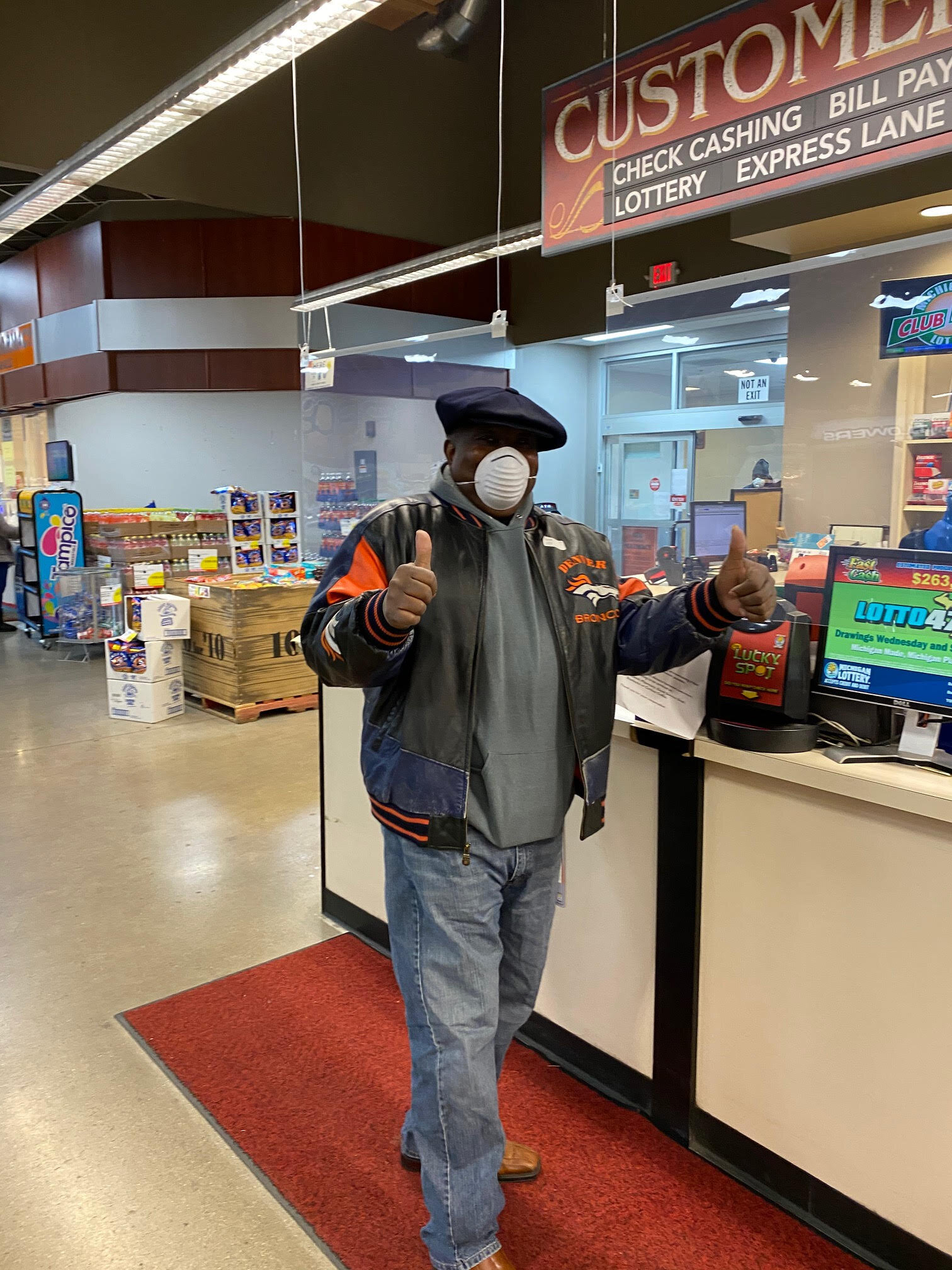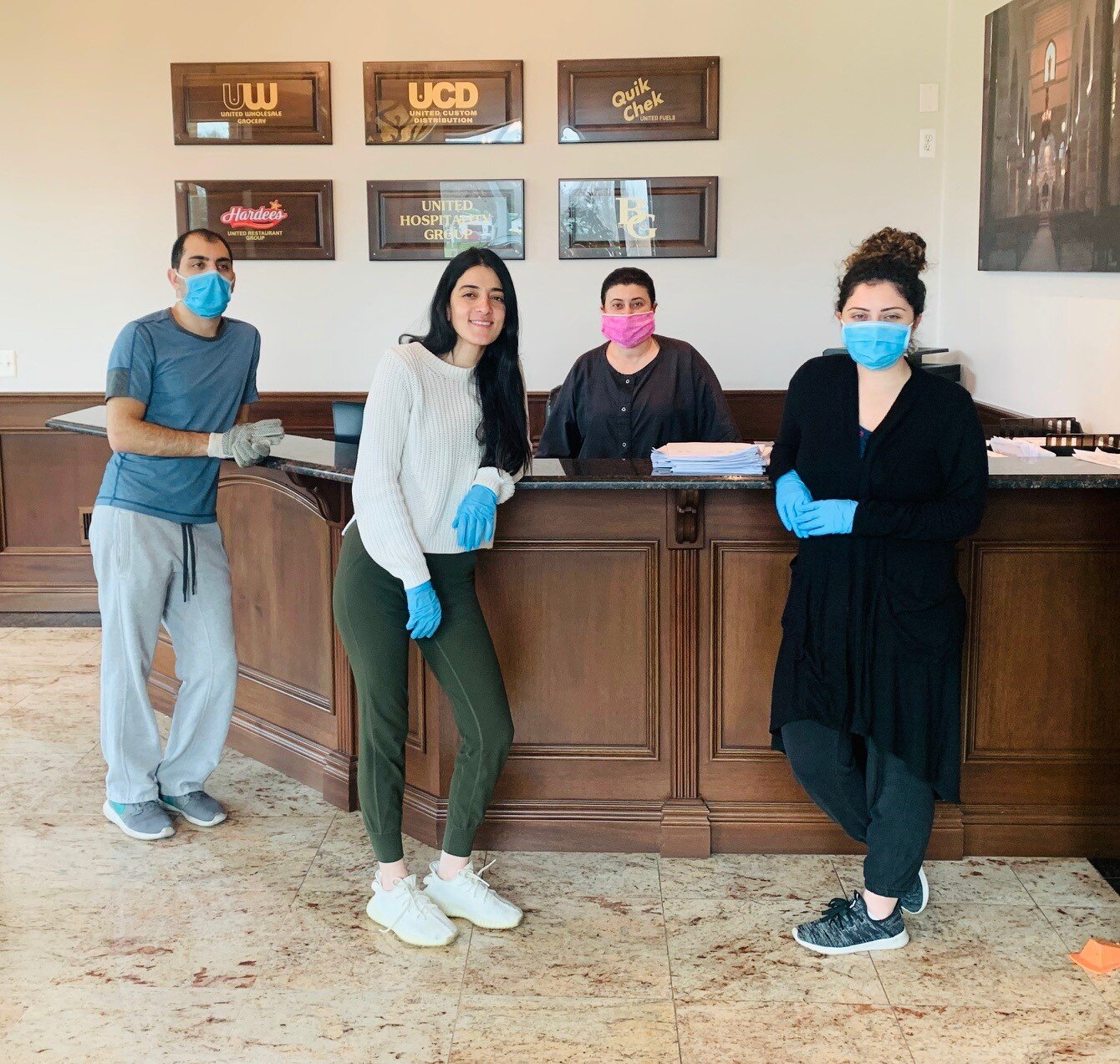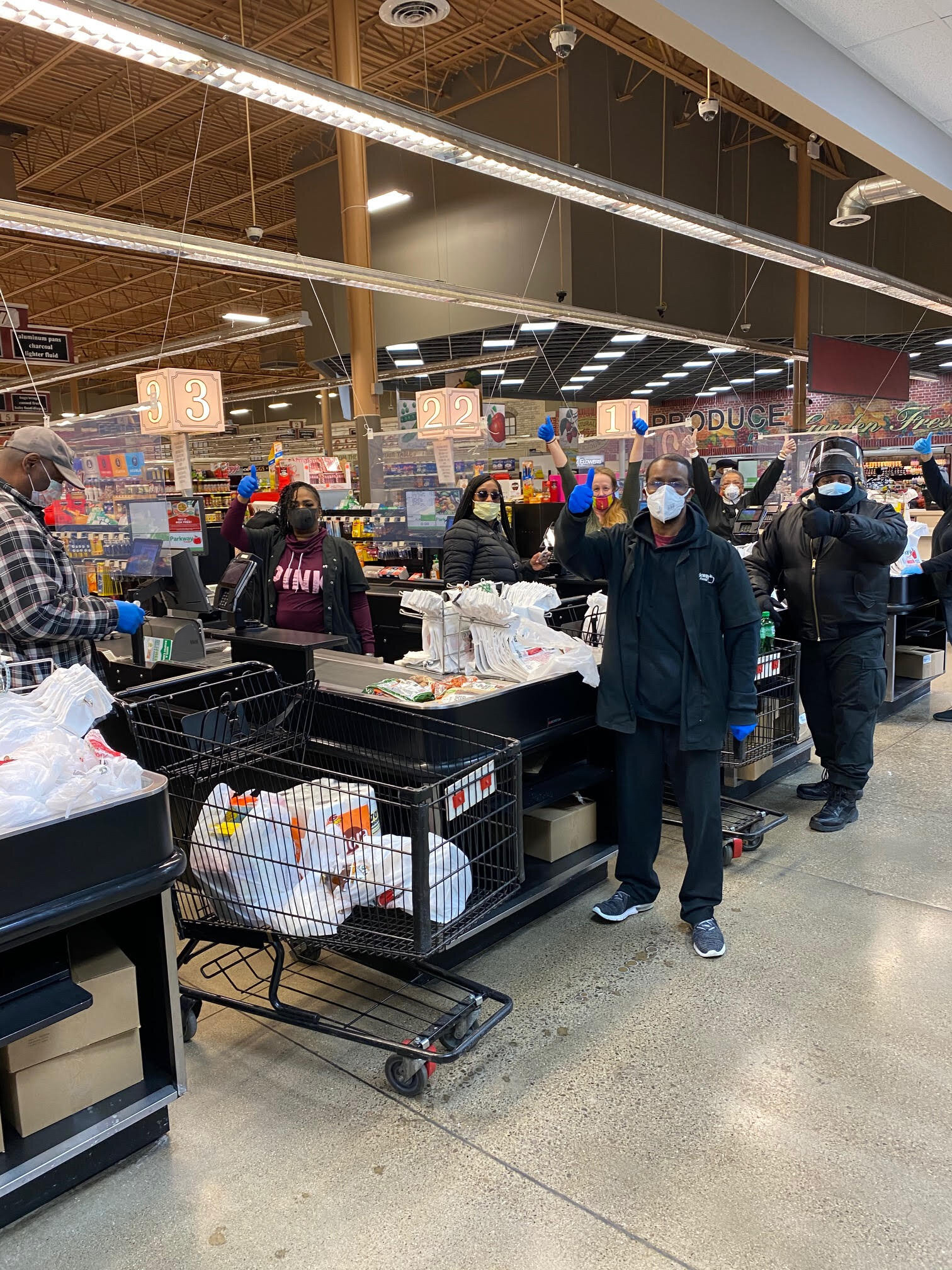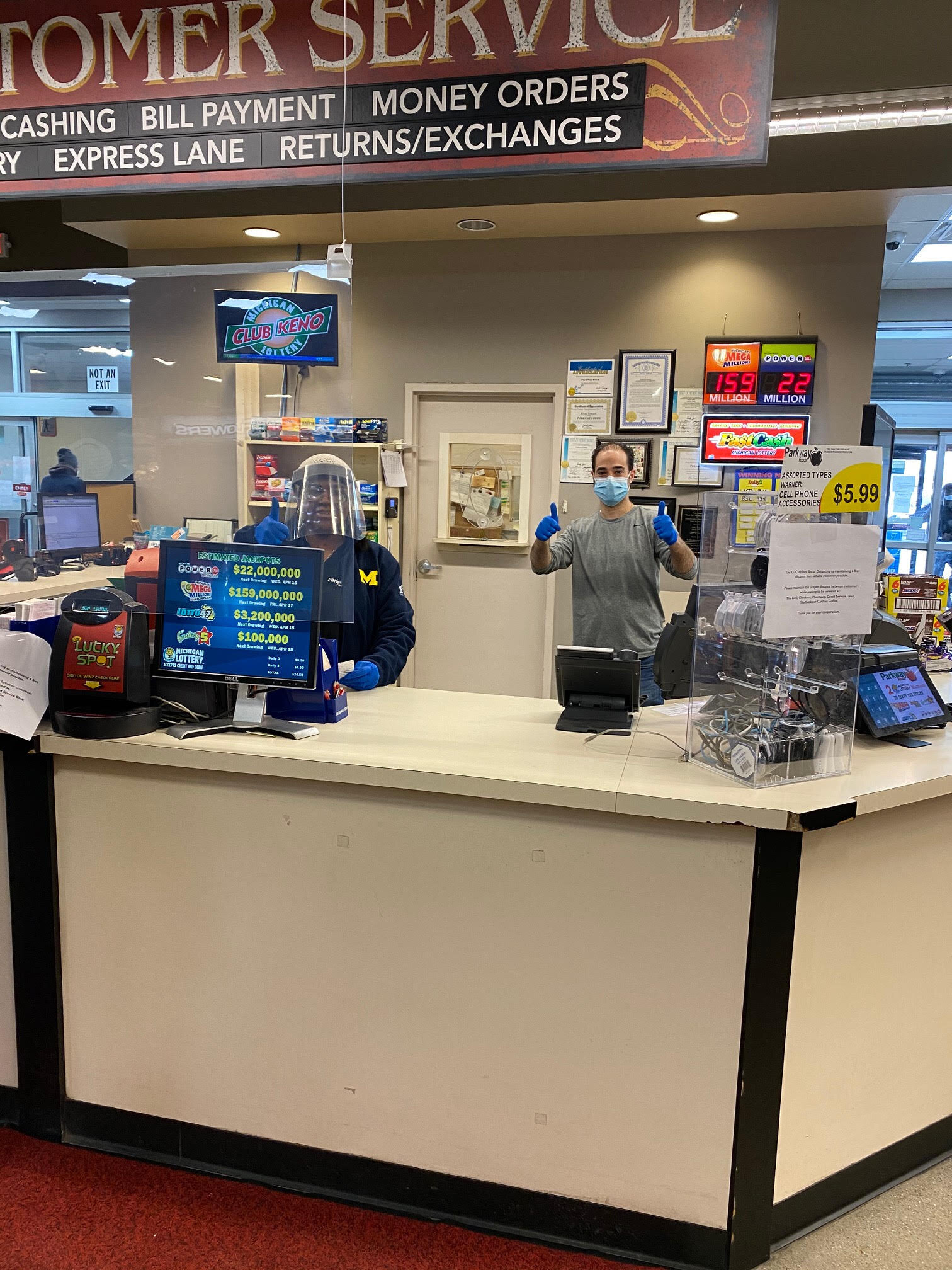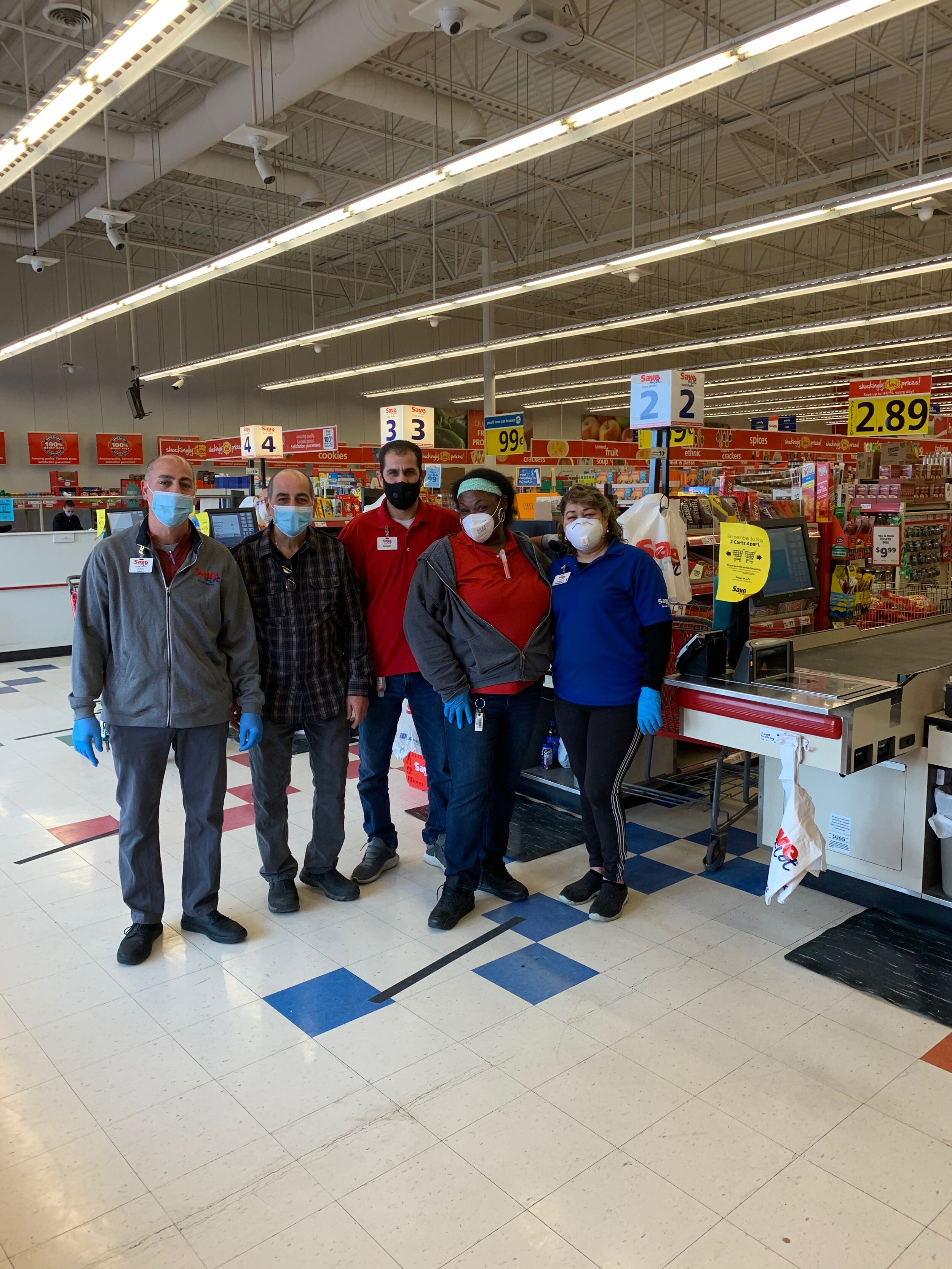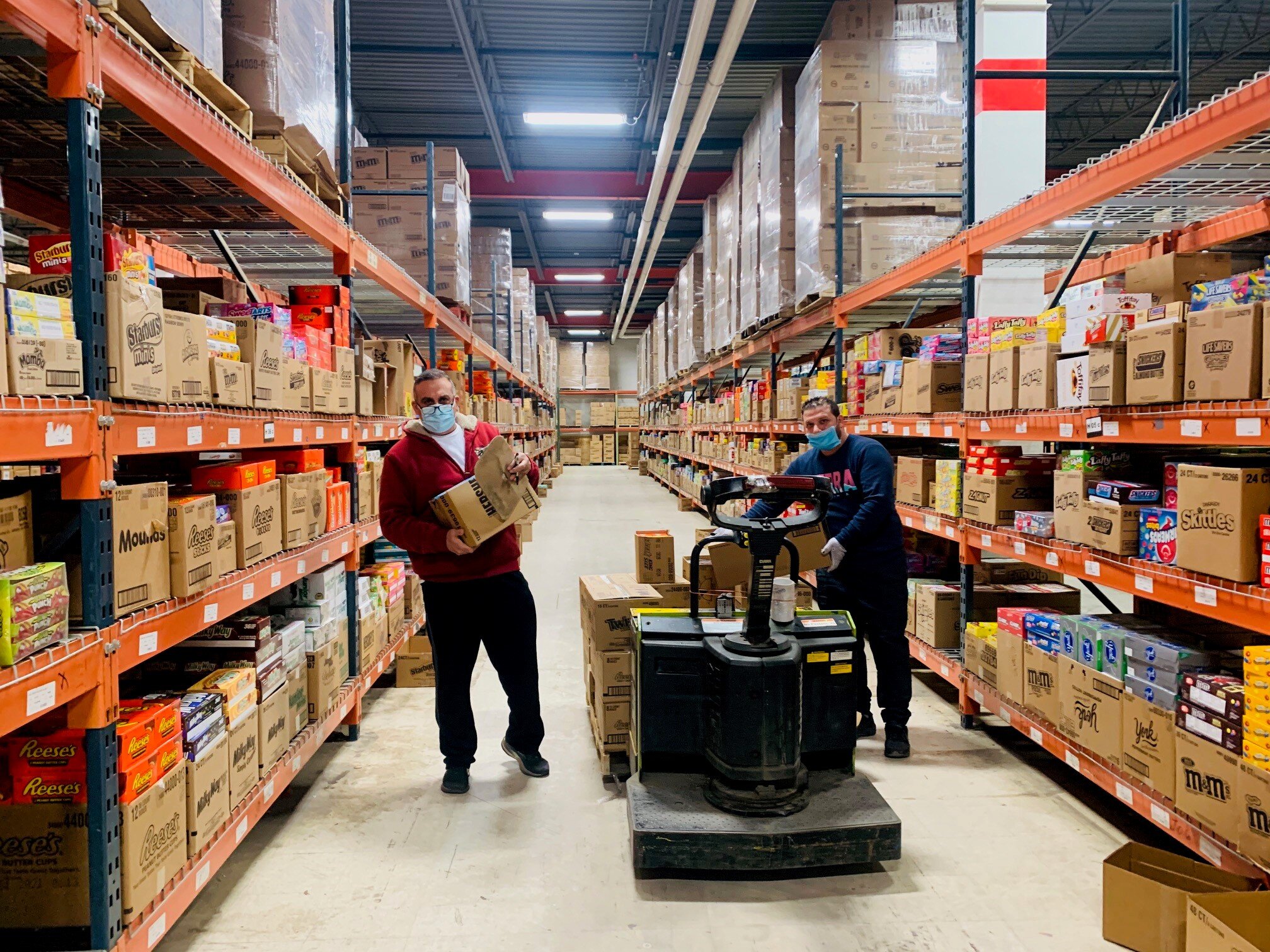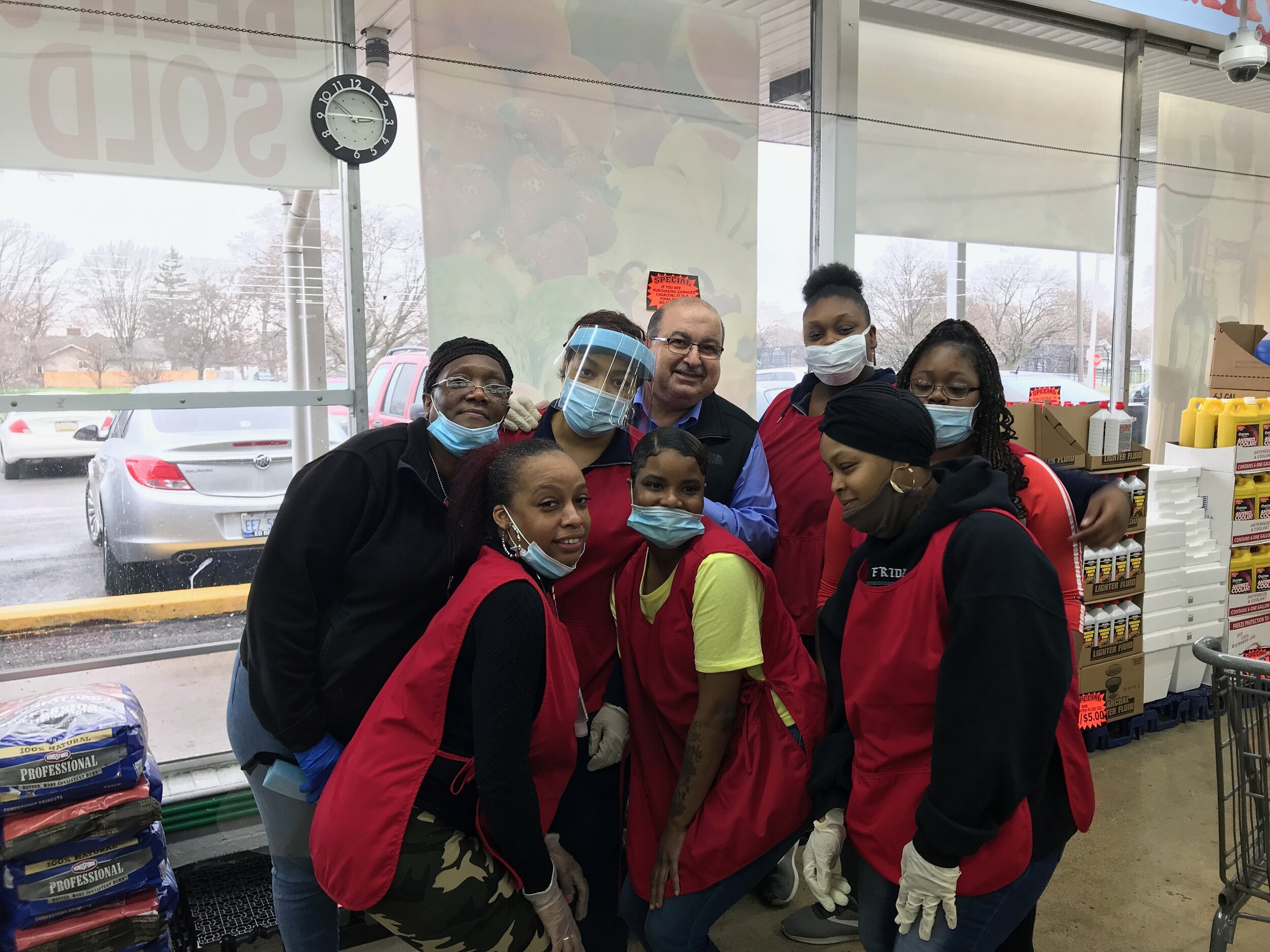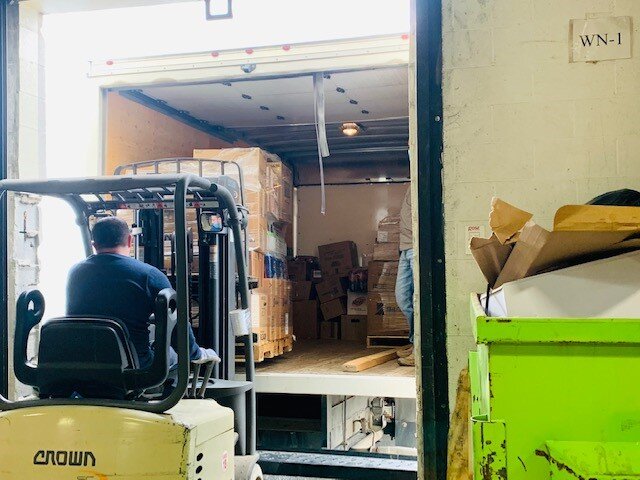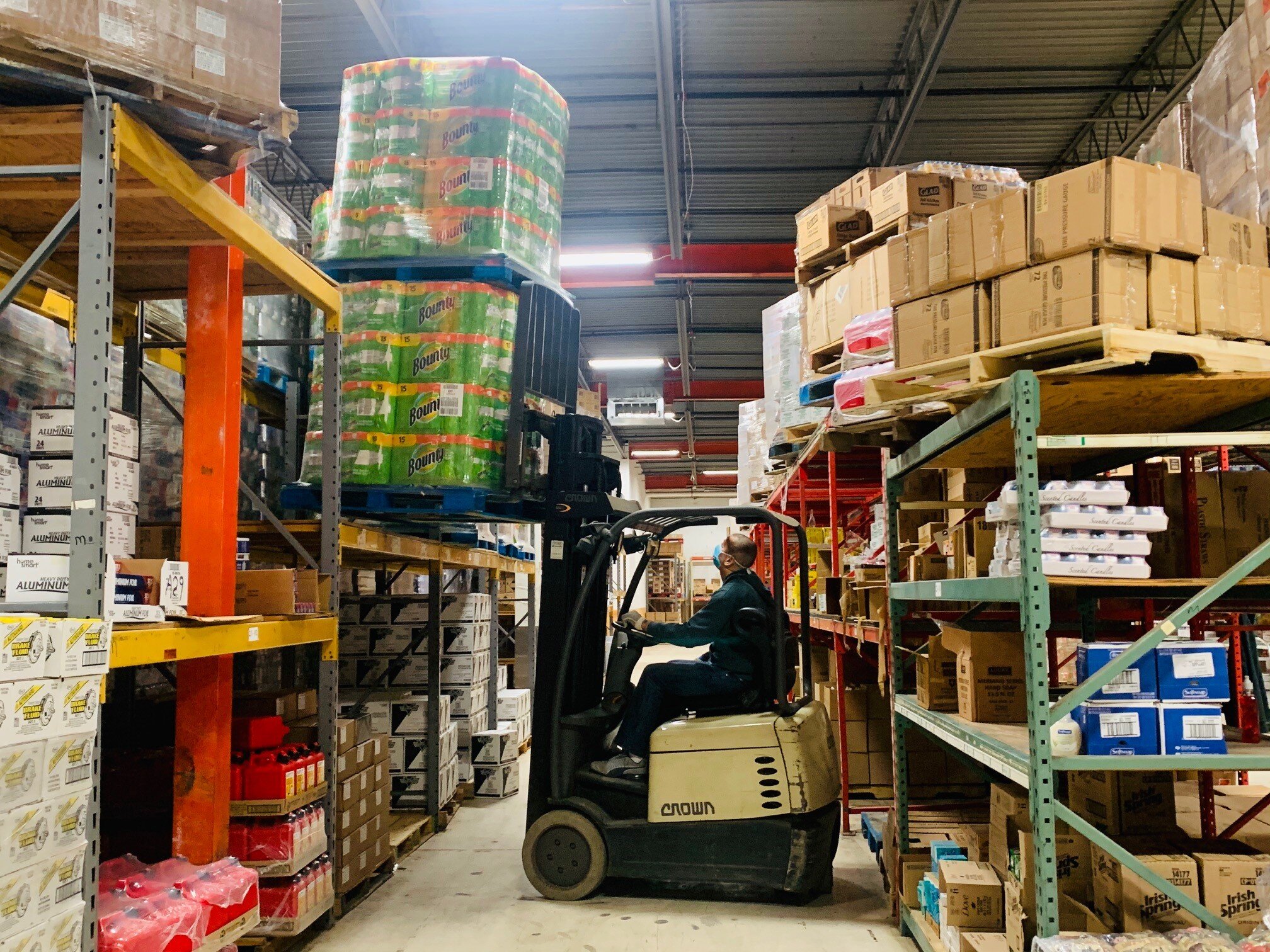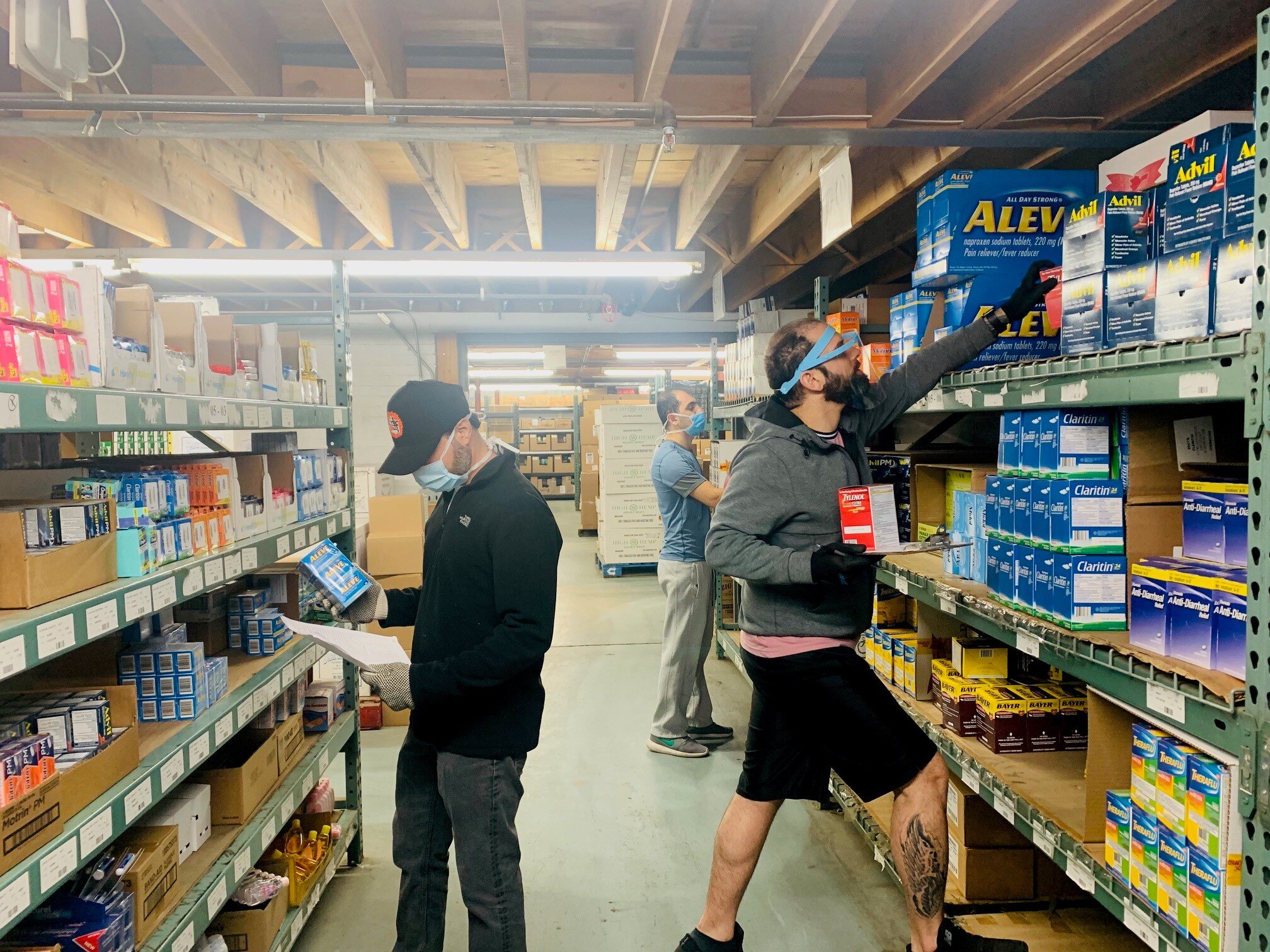Open for Business
Americana Foods staff and customers
Metro Detroit’s grocery oasis continue to serve neighborhood needs
BY STEVE STEIN
A trip to the supermarket hasn’t been the same for shoppers or grocery store owners and employees since the COVID-19 public health crisis invaded our lives.
Newly installed Plexiglas shields separate shoppers from cashiers. Stickers on the floor keep shoppers who are in line at checkouts at least six feet apart. Employees wear a mask and gloves while they’re working.
There are product shortages, many of them temporary, thankfully. Toilet paper. Paper towels. Disinfectants. Hand sanitizer. Rubbing alcohol. Dairy products. Rice. Pasta sauce. All have been missing at times from store shelves as people stock up because of the state’s stay-at-home order.
Grocery store owners have had to be creative and make tough decisions to keep their stores safe for employees and shoppers while providing a pleasant shopping experience. Hours of operation have been shortened to give hard-working employees much needed time off and because stores are short-staffed because some employees are concerned about coming to work.
Items to stock the shelves need to come from multiple sources, keeping store owners on their toes.
Many Chaldeans own grocery stores in the Detroit area. Most of the Chaldean-owned stores are independents that are in an integral part of the surrounding neighborhoods.
Grocery store owners Sam Hamama, Sam Khemmoro and Randy Rabban have the important task of keeping their “essential businesses” open and running.
Hamama owns Family Foods Market in Harper Woods, near the Detroit border. He’s been a co-owner of the store, a former Farmer Jack, for 16 years and he has 34 employees, some who have been there since Family Foods opened.
Khemmoro owns Grace Food Market, which has locations in Detroit and Highland Park. He’s owned the Detroit store for nine years and the Highland Park store for more than 13 years and he has about 30 total employees.
Rabban and other family members own five Sav-A-Lot stores, four in Detroit and one in Ypsilanti. The family has owned Sav-A-Lot stores for 29 years and have more than 100 employees.
Here are some of the store owners’ creative approaches for COVID-19 safety:
Hamama makes frequent announcements on his store’s public address system, reminding customers of necessary safety measures. He said that’s been a big help, as was talking directly to customers in the early days of the pandemic, before the importance of social-distancing became apparent, when customers would gather in high traffic areas like the meat and produce sections.
The personal approach works in his store, Hamama said, because he knows 50 percent of his customers by name.
Khemmoro said only 10 customers are allowed in his stores at the same time. That rule is enforced at the store entrance doors. “If I see a family shopping, I ask that only one family member do the shopping at the store the next time,” he said.
Another step for safety that Khemmoro has taken is stopping the sale of Michigan Lottery tickets. Lines to buy those tickets sometimes get quite long. The state is not penalizing stores for not selling lottery tickets.
Rabban said customers at his family’s Sav-A-Lot stores have their hands sprayed with sanitizer when they enter and leave the store. And grocery carts are sanitized each time they are used by a customer. “Every time, every customer,” Rabban said.
Employees who show up for work every day are valued by all three store owners. Especially since, as Rabban said, he often finds himself with one employee instead of three in the meat department and three cashiers instead of six. “I can’t force people to work if they’re worried about working,” he said.
Rabban has given bonuses to employees who come to work. Hamama gave his employees Easter off, and each received seven hours of pay. “I give my employees lunch every day,” he said. “I care about them.”
While trying to keep their stores and employees safe, store owners also are dealing with price increases from suppliers. “It may be gouging or supply-and-demand, or a combination of both,” Rabban said.
There is a silver lining in all the challenges facing grocery stores, which could last at least a year, in Rabban’s estimation. “Our sales are up,” he said. “At first it was difficult to keep some items in stock, but that’s improving.
“I think grocery stores will come out of this crisis stronger than ever. People are realizing that they are better cooks than they thought they were, and eating at home is usually cheaper than going out to a restaurant.”
Khemmoro said some of the changes made in grocery stores in response to the COVID-19 crisis will continue to be in place after the pandemic ends. And that’s not a bad thing.
“The changes in grocery stores will be just like the security measures that went into place after 9/11,” he said. “Employees who are sick won’t be coming to work, and stores will be as clean as possible. I also think the Plexiglas in front of cashiers will remain in place.”
Hamama is confident about the future of grocery stores ... and the Detroit area.
“We’ll survive this,” he said. “We’ll be OK.”
